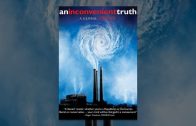★★★★★
Secrets, lies, love and sacrifices spanning a lifetime resonate across the English Channel and far beyond in writer-director Aleem Khan’s staggering debut, After Love.
Blending the traditions of a British-Pakistani household with the complications, and deceptions, of modern life, this simmering, low-key feature is at once as big as the moon and stars and as intimate as two cups of tea, sat side by side. Few life events can cause such a numbing, disorienting effect as the unexpected death of a loved one but grief will soon turn to disbelief for Mary (an extraordinary Joanna Scanlan).
A static, long take – one of many employed to great effect by cinematographer Alexander Dynan – opens on a kitchen as a couple return home in the pouring rain. The husband enters the living room, screen left, as his wife puts the kettle on. They chat from one room to the next, enjoy a piece of music he puts on; he sits down in an armchair to rest, but will not get up again. Fahima (Mary’s Muslim name) is stunned into silence – and it is from here on out that Scanlan’s enthralling performance grabs our attention for the duration.
Dismayed during the funeral, surrounded by members of Ahmed’s (Nasser Memarzia) disconsolate family, a single tear falls across her cheek. Unable to speak, her eyes do all the talking. It is not possible to articulate what such loss feels like, and so other than hearing Mary in her daily prayers, Khan’s restraint mirrors hers. But when going through her husband’s wallet she comes across a French identity card – for a lady named Geneviève, and messages on his mobile. Part of the white cliffs of Dover collapse into the sea as Mary looks back from the ferry (on which her husband worked) at a life, and memories of a marriage, crumbling around her.
In its observation of the everyday, its rhythm and its awkwardness, Khan’s script excels. “Are you here for the cleaning?” Seeking answers and potentially to confront a woman who has had a long-standing relationship with her husband, Mary is mistaken by Geneviève (Nathalie Richard) as someone from an agency. Geneviève is moving house, alone, and the clear-out of old clothes, photos and home videos is as revealing as it is shocking.
Clearing house is an obvious metaphor, but one that is left to play out of its own accord. Buffeted by the waves of shock and realisation at the extent of an act of deceit by her husband, she must keep up her own. She must know more, know why. It’s a tantalising dynamic which Khan slowly unties masterfully. Of such importance here, and part of the genius of the script, is that the man responsible for this seething anger, and due the retribution of both women, is absent.
For all the cattishness that could have transpired, Mary and Geneviève have a lot more in common than they might think. It is another obvious dramatic conflict that is cleverly subverted by the director who demonstrates a maturity well beyond his years at every turn. As barriers of language (Urdu, English and French) blur, the truth of the past and the reality of the present begin to fall. It would do a disservice to viewers and filmmakers alike to divulge more, but After Love is a technically proficient, sincere exploration of its thorny, complicated themes and gripping realist drama of the highest order.
AFTER LOVE – released in cinemas 4th June.

















